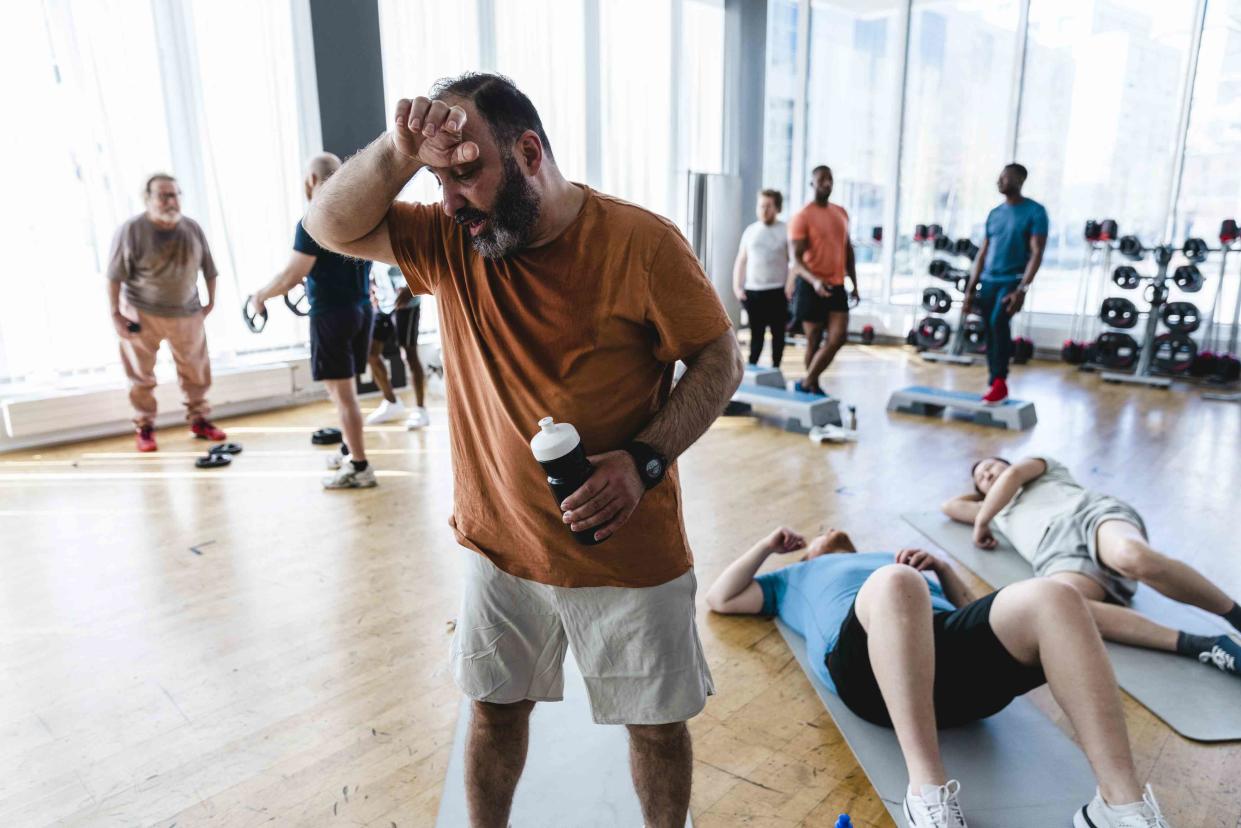Why Am I So Tired With Diverticulitis?

Maskot / Getty Images
Medically reviewed by Sonal Kumar
Diverticulitis is an intestinal disease, and fatigue is a major symptom for many people. It can be hard to treat, as diverticulitis fatigue comes from many possible causes.
The fatigue of diverticulitis often lingers long after the condition is successfully treated.
This article examines why diverticulitis is so tiring, the complications that can add to the fatigue, and how long you can expect fatigue to last after treatment.

Maskot / Getty Images
Why Am I So Tired With Diverticulitis?
Diverticulitis causes fatigue in multiple ways. Some of the primary ways are:
Infection: Your immune system activates to fight infection, and that takes a lot of energy. This can leave you feeling drained and tired.
Inflammation: Inflammation is a normal part of the immune response. But studies suggest it interferes with sleep architecture (cyclical sleep patterns), making your sleep unrefreshing.
Symptoms: The pain or discomfort of diverticulitis can disrupt your sleep, and so can urgent bouts of diarrhea that get you out of bed.
Causes Due to Complications and Treatments of Diverticulitis
Beyond those direct causes of fatigue, diverticulitis can involve complications or treatments that lead to or increase your fatigue, such as anemia, dehydration, medication, and postsurgical healing,
Anemia
Iron-deficiency anemia, which results in a lack of red blood cells to carry oxygen to cells, is a condition that causes fatigue, along with other symptoms such as:
Shortness of breath
Dizziness
Chest pain
Diverticulitis and other intestinal conditions can cause anemia by interfering with how nutrients are absorbed into your bloodstream. If you notice symptoms of anemia, be sure to inform your healthcare provider immediately.
To help prevent anemia, ensure you get enough iron in your diet. If that’s difficult for you, talk to your healthcare provider about takiing iron supplements.
Related:Anemia Diet: What You Should Eat
Dehydration
Diverticulitis can cause fever, diarrhea, and vomiting, leading to excessive water loss and dehydration.
Some people with this condition avoid eating because it leads to unpleasant digestive symptoms. This can also cause or contribute to dehydration. Drink lots of fluids and get enough electrolytes to prevent dehydration during a diverticulitis attack.
Symptoms of dehydration include:
Extreme thirst
Dry mouth
Infrequent urination
Lack of sweat
Dry skin
Dizziness
If you notice symptoms of dehydration, drink water and/or electrolyte-replacement drinks. If symptoms become severe, get urgent medical help. You may need intravenous (IV) fluids.
Related:Preventing Dehydration
Medication Side Effects
If you become fatigued or more tired after starting treatment for your diverticulitis, the fatigue could be a side effect of medications. Common diverticulitis treatments that cause fatigue in some people include:
Antibiotics: Amoxicillin, ciprofloxacin
Painkillers: Tylenol (acetaminophen)
Antispasmodics (muscle relaxers): Bentyl (dicyclomine), Buscopan (hyoscine butylbromide)
Ask your healthcare provider if there’s an alternative drug that would work for you if you have unpleasant side effects from medications.
Absorption problems can lead to other essential vitamin and nutrient deficiencies, as well. Some of these deficiencies may be hard to notice because of symptoms similar to diverticulitis. If you notice any new or worsening symptoms, talk to a healthcare provider.
Postsurgical Healing
Fatigue is common during recovery if you need to have surgery for diverticulitis. This is due to many factors, such as:
Pain
Medication side effects
Lingering effects of general anesthesia
The trauma to your body
As with inflammation, multiple physiological changes after surgery can alter your sleep architecture and leave you feeling nonrested in the morning.
How Long Does Fatigue Last After Diverticulitis?
Little to no research has been done to look at lingering fatigue after diverticulitis treatment. Anecdotal evidence suggests it could take four to six weeks for the fatigue to disappear.
If your fatigue lasts longer than that or is severe, bring it up with a healthcare provider.
Coping With Diverticulitis Fatigue
It can be hard to live with the fatigue of diverticulitis, especially if it’s just one of many symptoms you’re trying to manage.
Self-care is important. Try to get extra sleep and rest. Reduce your stress, if possible. Eat a healthy diet that doesn’t make your symptoms flare. And follow a healthcare provider’s suggested treatment regimen.
If you need extra help or can’t be as social as usual due to fatigue, let the people close to you know about it and enlist their help. When possible, delegate tasks to family members or friends. Look for social activities that accommodate your symptoms, such as a game or movie night at your house instead of going out to dinner and a show.
If you need help coping emotionally with the impact of your illness, let your healthcare provider know. You may benefit from seeing a mental health professional or taking antidepressants.
Summary
Diverticulitis is an intestinal disease that can cause fatigue in some people. The fatigue may be caused by infection, inflammation, or sleep disruption due to pain. It could also be related to nutritional deficiencies such as anemia, dehydration, medication side effects, or surgery.
How long fatigue may last after your diverticulitis has been successfully treated is unknown. If it’s severe or persistent, talk to a healthcare provider. Self-care during and after a diverticulitis attack can help your body recover. Speak up about any emotional problems you may experience.

